Asia
Gay man recounts escape from Taliban-controlled Afghanistan
Group regained control of country on Aug. 15, 2021
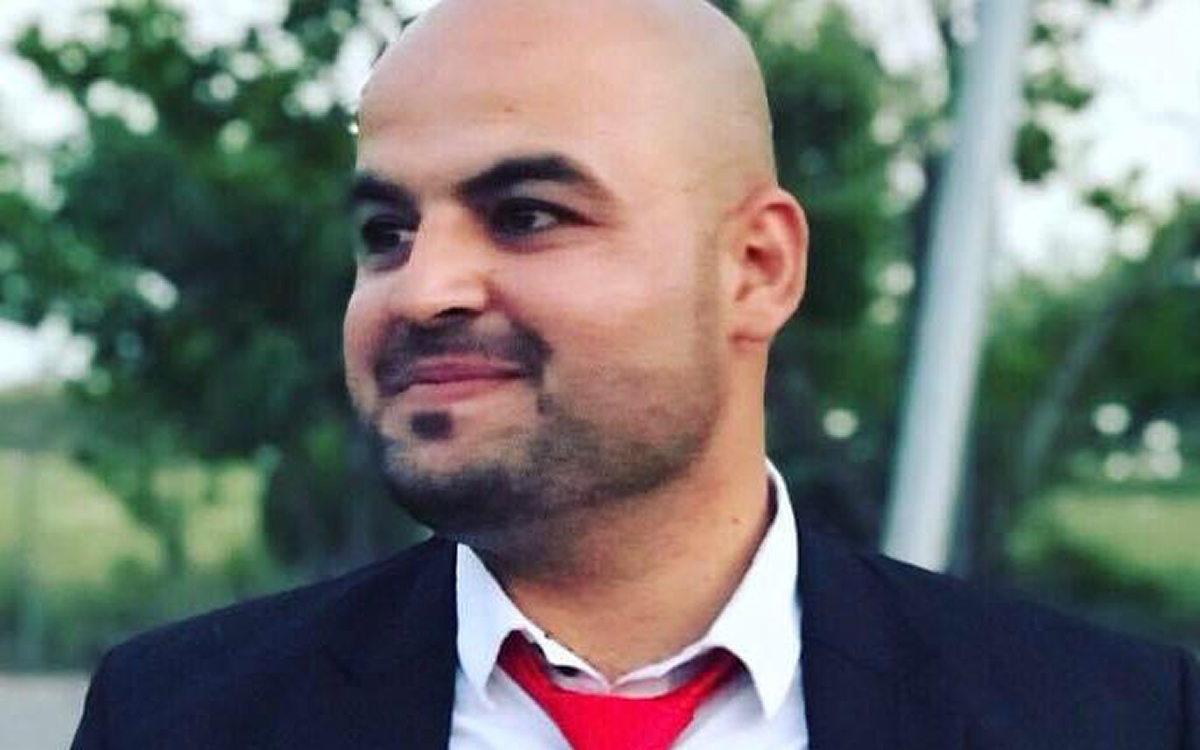
Imran Khan is a gay man from Afghanistan.
An American soldier who texted him on Aug. 26, 2021, 11 days after the Taliban regained control of Afghanistan, told him to go to Kabul International Airport. Khan, along with a group of other LGBTQ and intersex Afghans and members of the country’s special forces, were able to pass through Taliban checkpoints after a mullah with whom they were traveling said they were going to their cousin’s house for a child’s funeral. The group of LGBTQ and intersex Afghans were able to enter the airport, but Khan and several soldiers who were members of the country’s special forces were outside the perimeter when a suicide bomber killed more than 180 people at a gate the U.S. Marines controlled. They returned after the attack, but were then forced to leave.
Khan was still in Kabul on Aug. 30, 2021, when the last American forces withdrew from the country.
Kabul Luftbrücke, a German group, on March 18, 2022, evacuated Khan from Kabul to Pakistan. Khan arrived in Germany less than a month later and now lives in Korbach, a city in the country’s Hesse state.
Khan’s partner and many other LGBTQ and intersex Afghans he knows remain in Afghanistan.
“I’m still hoping that an angel will come and will save their lives before the Taliban finds them,” Khan told the Washington Blade on Monday.
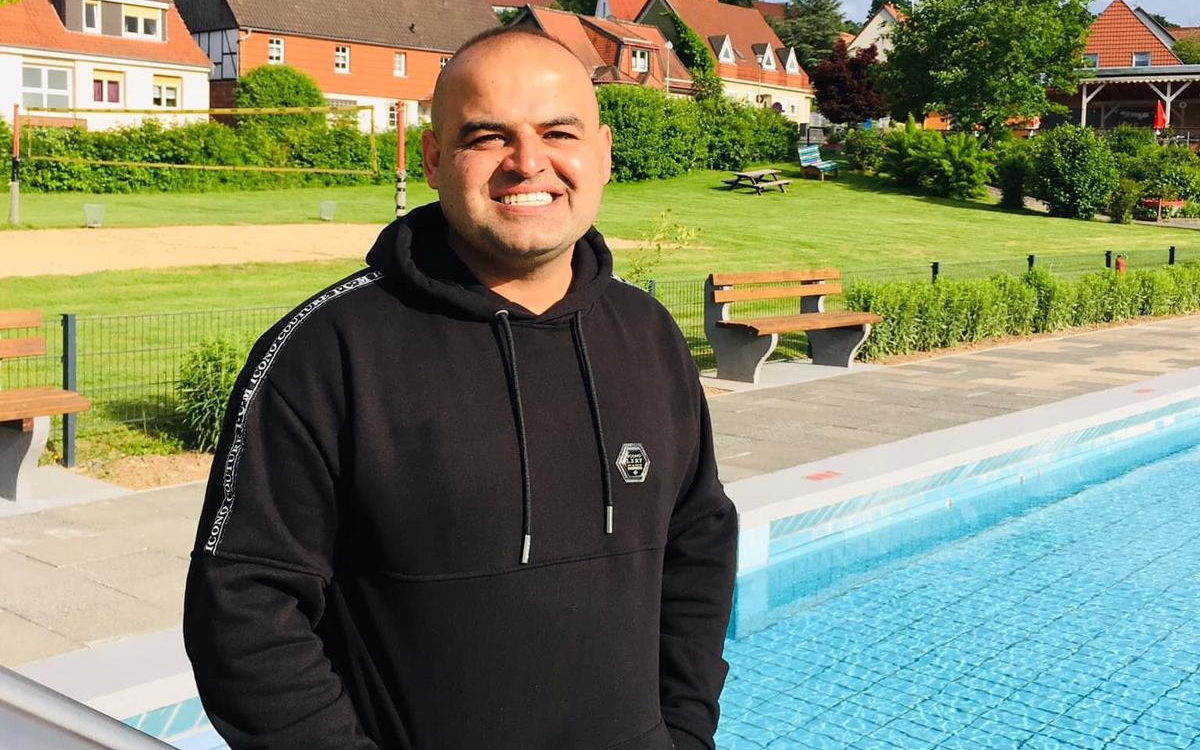
Khan is among the LGBTQ and intersex Afghans who have been able to leave Afghanistan since the Taliban regained control of the country.
Dane Bland, the director of development and communications for Rainbow Railroad, on Monday told the Blade the Toronto-based organization has been able to evacuate 247 LGBTQ and intersex Afghans to the U.S., the U.K., Canada and Ireland.
A group of 29 LGBTQ and intersex Afghans who Rainbow Railroad helped evacuate from Afghanistan with the help of the British government and two LGBTQ and intersex rights groups in the country — Stonewall and Micro Rainbow — arrived in the U.K. on Oct. 29, 2021. A second group of LGBTQ and intersex Afghans reached the country a few days later.
Taylor Hirschberg, a researcher at the Columbia Mailman School of Public Health who is also the Hearst Foundation scholar, said he has helped upwards of 70 LGBTQ and intersex Afghans and their families leave the country.
“I know that there are some people who are still fighting to get people out, but now it has come down to a trickle,” Hirschberg told the Blade on Monday.
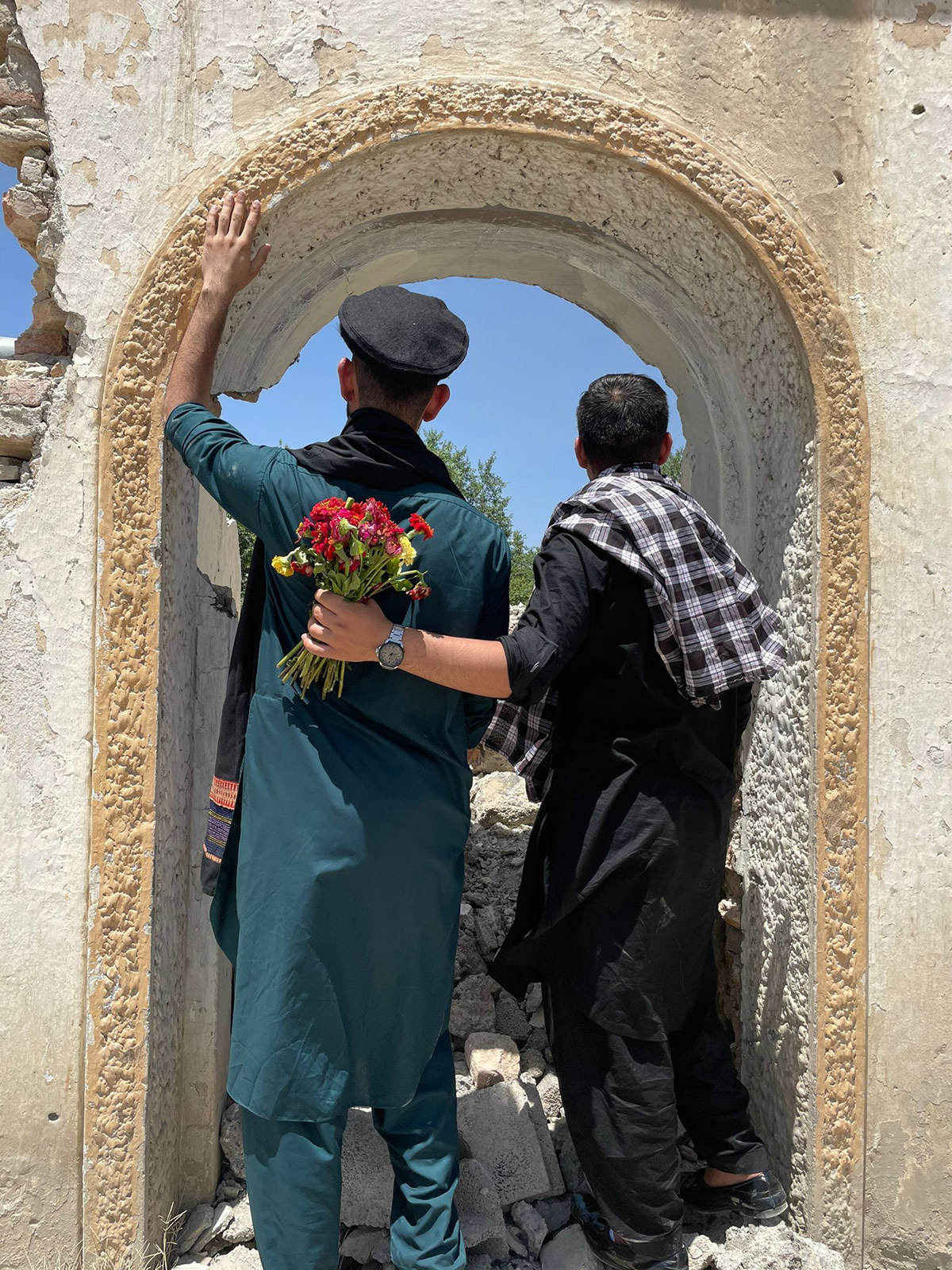
A Taliban judge in July 2021 said the group would once again execute gay people if it were to return to power in the country.
A report that OutRight Action International and Human Rights Watch released earlier this year notes a Taliban official said his group “will not respect the rights of LGBT people” in Afghanistan. The report also documents human rights abuses against LGBTQ and intersex Afghans, including an incident in which the Taliban beat a transgender woman and “shaved her eyebrows with a razor” before they “dumped her on the street in men’s clothes and without a cellphone.”
OutRight Action International on Monday told the Blade that it has had “at least one confirmed report of the killing of an LGBTQ activist, police searching for another and several more reports of extrajudicial killing and other forms of persecution that are difficult to confirm given the danger to political witnesses.”
“The U.S. and other governments that profess support for human rights need to do more to ensure the Afghan regime respects fundamental rights of all Afghans and help those in danger to reach safety,” said OutRight Action International.
Bland said Rainbow Railroad “absolutely” feels “governments, including the governments of the United Kingdom, Canada and the United States, should be doing more to help LGBTQI+ Afghans fleeing the current crisis.”
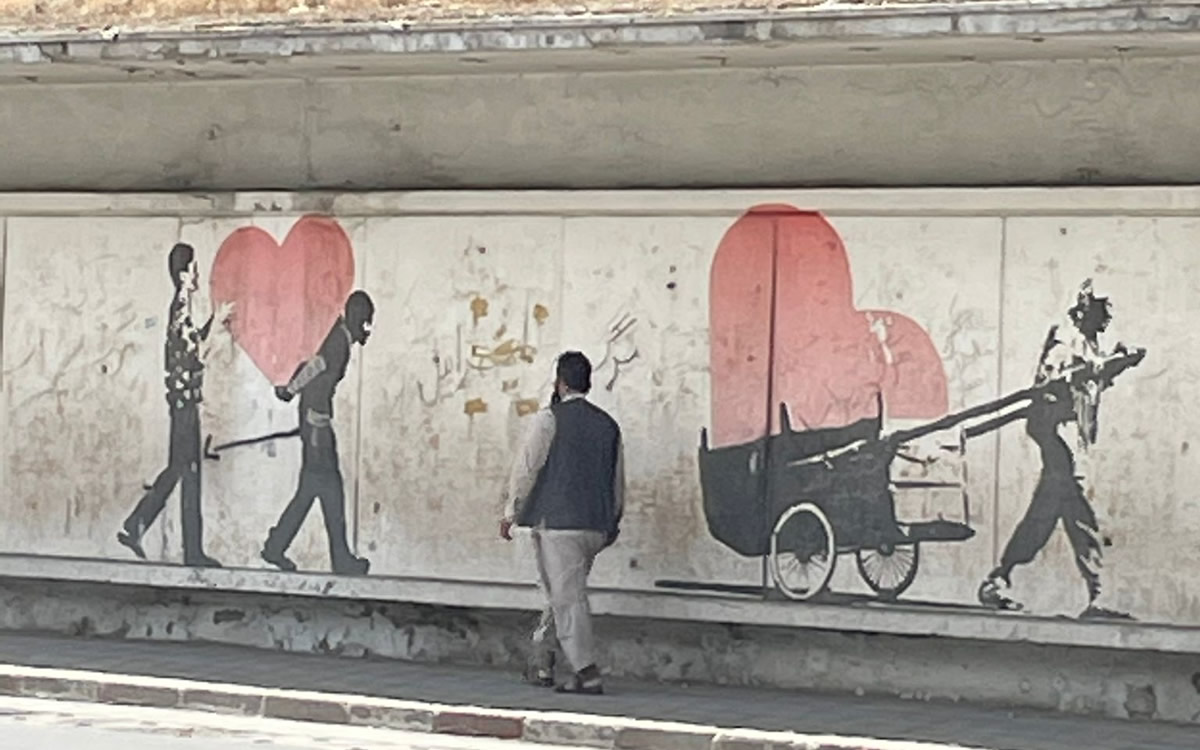
Immigration Equality Legal Director Bridget Crawford on Monday noted her organization’s LGBTQ and intersex Afghan clients who “survived unspeakable trauma, both as a consequence of sharia law and existing brutal homophobic practices” are “now safely resettled in Canada.” Crawford nevertheless added that Immigration Equality recognizes that “many more queer people are still at grave risk in Afghanistan.”
“The Biden administration must prioritize these LGBTQ Afghans as refugees in the United States,” said Crawford. “President Biden himself has expressed that the U.S. has the good will and capacity to take in vulnerable refugees, but he must back up those words with action.”
State Department spokesperson Ned Price on Monday told reporters during a briefing that nearly 90,000 Afghans have been “evacuated or otherwise transported to the” U.S. since Aug. 15, 2021. Price also noted the U.S. has “facilitated the departure of some” 13,000 Afghans from Afghanistan since the last American troops withdrew from the country.
“There are a number of priorities, a number of enduring commitments we have to the people of Afghanistan,” said Price. “At the top of that list is to use every tool that we have appropriate to see to it that the Taliban lives up to the commitments that it has made publicly, that it has made privately, but most importantly, the commitments that the Taliban has made to its own people, to all of the Afghan people. And when we say all of the Afghan people, we mean all. We mean Afghanistan’s women, its girls, its religious minorities, its ethnic minorities. The Taliban has made these commitments; the Taliban, of course, has not lived up to these commitments.”
Price, who is openly gay, did not specifically refer to LGBTQ and intersex Afghans during Monday’s briefing.
Hirschberg said Canada, France, Germany and the U.K. have “come to bat” and “are really supporting getting LGBTQI Afghans out, along with others.” He told the Blade the U.S. has not done enough.
“We’re not seeing quite the eagerness from the United States, unfortunately,” said Hirschberg.
The Blade has reached out to the White House for comment on the first anniversary of the Taliban regaining control of Afghanistan and efforts to help LGBTQ and intersex Afghans leave the country.
Ukraine overshadows plight of LGBTQ and intersex Afghans
Russia on Feb. 24 invaded Ukraine.
The U.N. High Commissioner for Refugees notes more than 6 million Ukrainians have registered as refugees in Europe.
The European Union allows Ukrainians to travel to member states without a visa.
Germany currently provides those who have registered for residency a “basic income” that helps them pay for housing and other basic needs. Ukrainian refugees can also receive access to German language classes, job training programs and childcare.
Dr. Ahmad Qais Munhazim, an assistant professor of global studies at Thomas Jefferson University in Philadelphia who is originally from Afghanistan, has helped three groups of Afghans leave the country since the Taliban regained control of it.
Munhazim on Monday noted to the Blade his family has lived in a Toronto hotel room for three months. Munhazim also pointed out the treatment that Ukrainian refugees once they reach the EU, the U.K., Canada or the U.S.
“Countries of course would claim they were not prepared, but we can see that it was a very racialized response,” said Munhazim. “The way they responded to Ukraine, they weren’t prepared for that either, but we know that these borders immediately started opening up, assistance was offered in a very, very humanitarian way to Ukrainians just because they had blond hair and blue eyes, which was not offered to Afghans or Syrians earlier when they were fleeing Syria.”
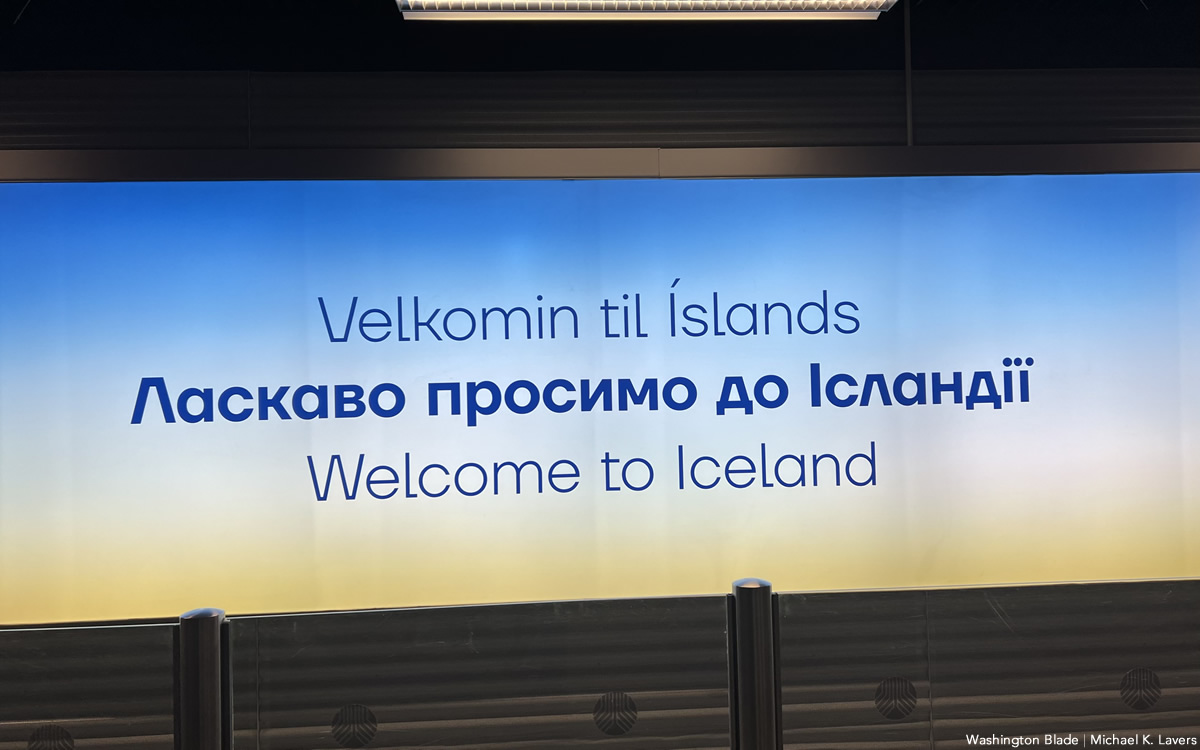
Maydaa told the Blade that countries had “this huge concern about LGBT people coming from Afghanistan.”
“It was related to, I believe, terrorism and all this prejudgment of Afghan people,” said Maydaa. “I also think this is playing a huge role when it comes to resettlement and international action.”
Maydaa, like Munhazim, also noted the different reception that Ukrainian refugees have received once they reached the EU or the U.K.
“They, especially in Europe and the U.K., feel they have more responsibility towards Ukraine,” said Maydaa. “[There was] all this racism on the news. ‘They look like us. They are blonde, green eyes, white skin, Christians.'”
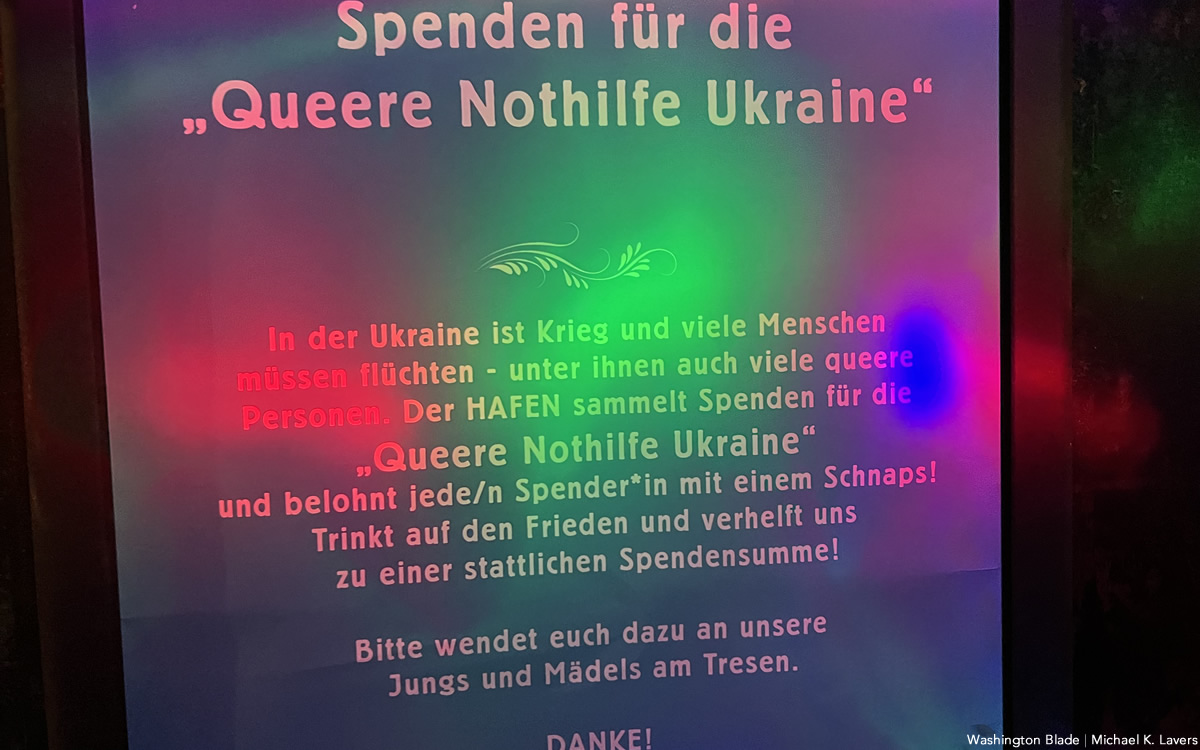
Asia
Maldives activists say new president won’t bring LGBTQ rights to country
Island nation is a popular tourist destination
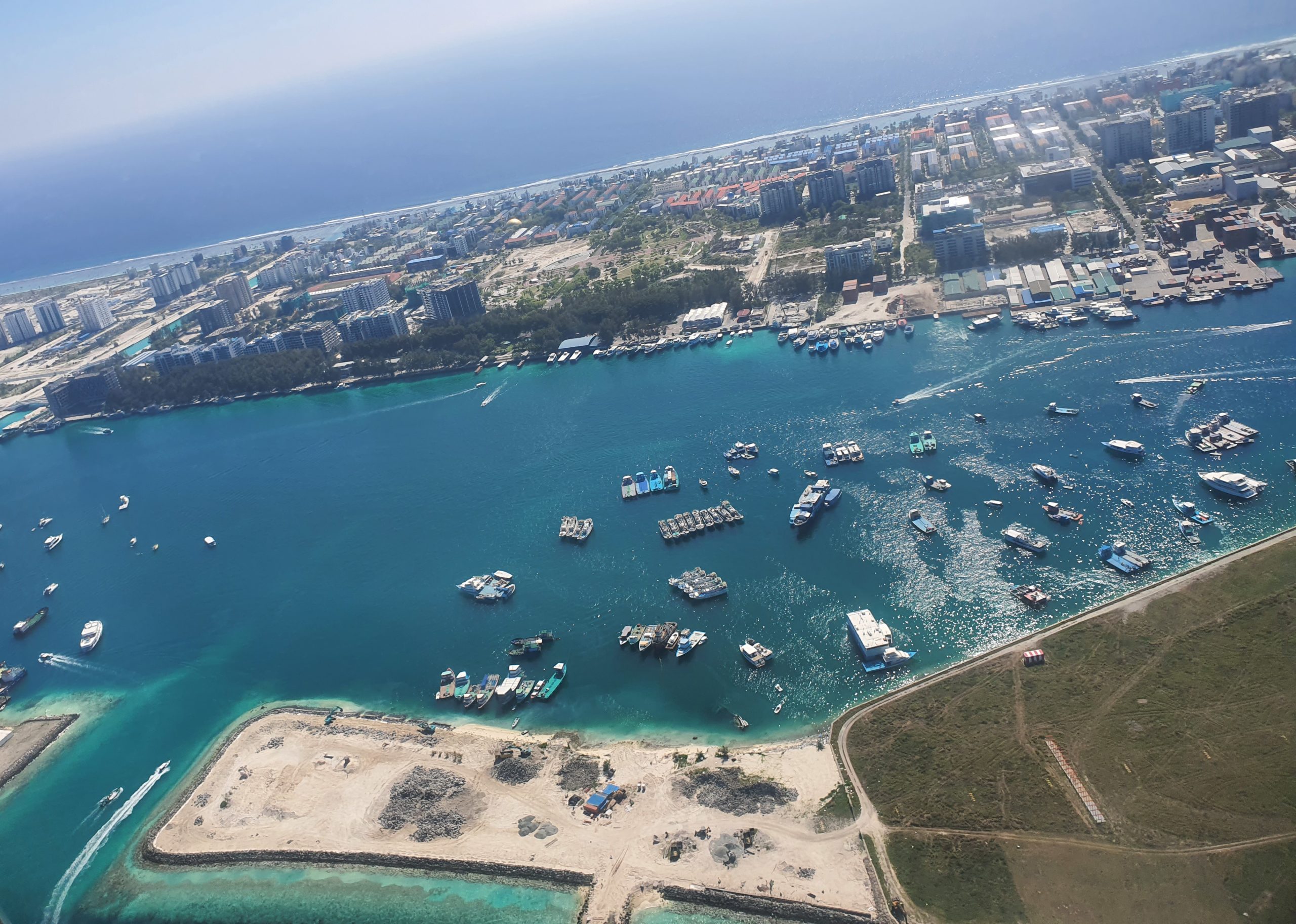
Maldives, a Southeast Asian country that is a popular tourist destination, on Sept. 30 elected a new president.
Doctor Mohamed Muizzu, leader of the Progressive Party of Maldives and the president-elect, secured 54 percent of the total votes. He defeated incumbent President Ibrahim Mohamed Solih of the Maldivian Democratic Party.
Maldives does not offer any rights to the LGBTQ community.
Consensual same-sex sexual activities are prohibited in the country under the Penal Code 2014. Same-sex couples can face up to eight years in prison and 100 lashes (for both men and women.) The penal code works under the Islamic laws that criminalize same-sex relationships in the country.
Solih in 2019 started to work on human rights concerns and LGBTQ issues in the country, but the previous government abandoned the work after Islamic extremists pressured them. Solih did nothing to prevent extremist groups from attacking the country’s democratic institutions.
“I believe for ordinary liberals it would be safer with the new government because when the Progressive Party of Maldives ruled before, they did not get personal with activists who were not connected to the opposition. They were busy fighting with each other,” said Ulfa M. Fahmee, a humanist creator and LGBTQ rights activist. “Now the ruling party wants international rights groups to see they value democratic values, so they don’t openly arrest opposition activists, instead they attacked those viewed as promoting liberal values.”
“(The) new president is already focused on bringing economic equality unlike previous government who sent islanders to pray for rain when the poor ran out of stored rainwater in the islands making Maldivians believe they have to sacrifice LGBTQ and irreligious for God to get necessities instead of asking from government,” added Fahmee.
Fahmee was forced to flee Maldives because of safety concerns after state-sponsored news outlets accused her of blasphemy.
She said the Maldivian Democratic Party ran a hate campaign against her while the opposition party was protesting against government officials who were caught doing a blasphemous report.
Fahmee told the Washington Blade that Maldivian media is not allowed to post pictures until a conviction is secured, but the press published her pictures while she was still under investigation, putting her in danger of being harmed by extremists. With pain and anger in her words, Fahmee told the Blade that local police still have not returned any of her and her family’s confiscated electronics.
Fahmee is currently living in exile.
“We don’t have an openly LGBTQ community in Maldives, but the current govt enjoyed inciting hate and violence against ordinary liberals who were seen as part of LGBTQ,” said Fahmee. “Whenever privileged elites were accused of any un-Islamic activity, (the) MDP government did hate campaigns against ordinary liberals and jailed many people while at the same time sending human rights fraud reports to international rights organizations blaming Islamists for the hate spreading. Islamists are usually after the government officials so govt tries to divert hate targeted at them by encouraging more state sponsored hate against liberals.”
LGBTQ activists have faced several challenges in the Maldives, including disappearances and death.
Radical Islamic extremists in June 2012 killed blogger, LGBTQ activist and journalist Ismail Khilath Rasheed. Authorities did not investigate the murder.
According to a report published by The Edition, a local Maldivian media outlet, former President Mohamed Nasheed and his newly formed party will be part of the incoming government and will take oath on Nov. 17 with Muizzu.
“There is going to be no change as a consequence of Dr. Mohamed Muizzu being president,” said Shakyl Ahmed, an LGBTQ activist. “Some say that it will get worse because ‘salaf’ (a group of sheikhs) is on the new president’s side, but the new president definitely won’t make things better for us.”
Ahmed told the Blade he is not hopeful about the new government. He said that the new president doesn’t change the lives of the LGBTQ community in the country.
“Most LGBT people in Maldives are Muslim, so most of them don’t support gay rights in Maldives, even if they are gay,” said Ahmed. “However, they do engage in sexual acts with the same sex in secret. There are a few of us who support gay rights and we are trying to progressively change people’s minds.”
Kit Died, another LGBTQ activist, told the Blade the president-elect will make the situation worse for the LGBTQ community in Maldives. Died added he is known to have connections with extremist factions.
“We have no support from the government at all — our existence itself is a crime — so all crimes against queer folk in this country get ignored,” said Kit. “Queer people get blackmailed, robbed, and sexually assaulted regularly here with no investigation or police report.”
“The Anti-LGBTQIA+ narrative in Maldives is upheld by the constitution,” added Kit. “The Maldives constitution is one of the few places in the world that mandates all its citizens to be Sunni Muslims. This creates a paradox for citizens who were born into the religion and want to leave or happen to be queer. There’s no space for queerness in the Maldives’ specific variety of Islam, which is stricter than most in practice thanks to the tiny population that is concentrated in very small cities.”
Ankush Kumar is a reporter who has covered many stories for Washington and Los Angeles Blades from Iran, India and Singapore. He recently reported for the Daily Beast. He can be reached at [email protected]. He is on Twitter at @mohitkopinion.
Asia
Pakistan resumes issuing ID cards to transgender people
Federal Shariat Court in June ruled against trans rights law
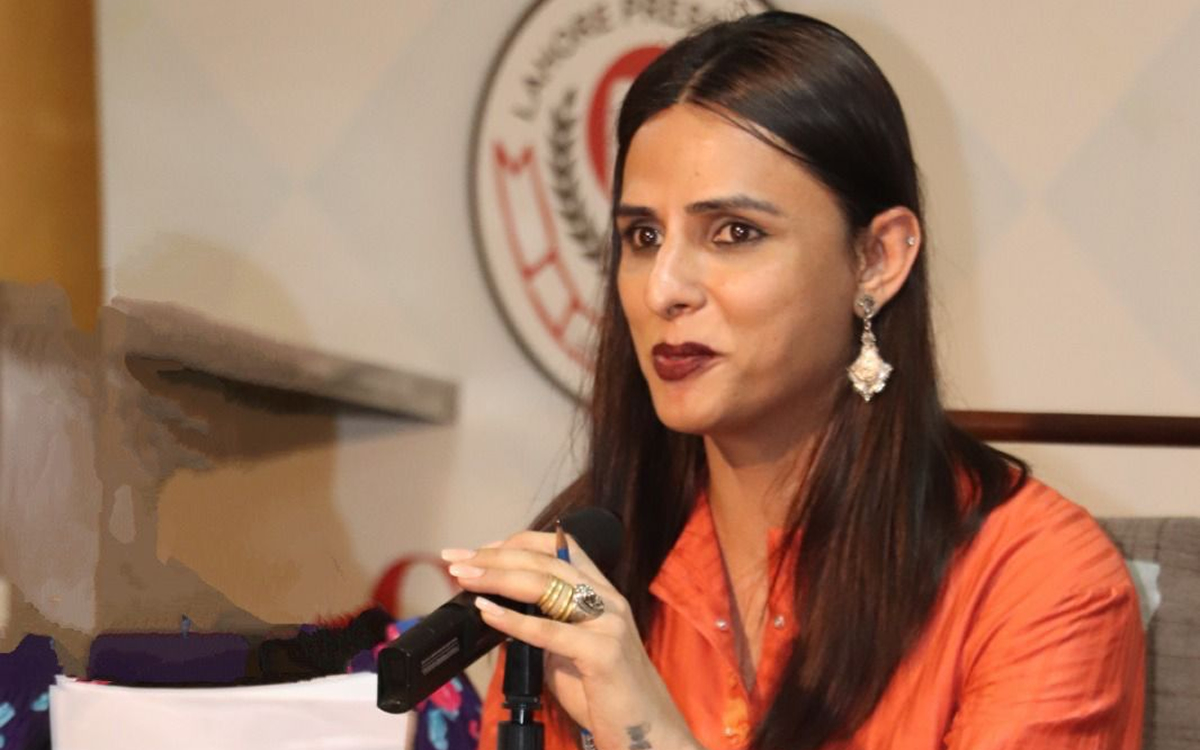
Pakistani authorities have resumed the registration of transgender people and issuing identity cards to them after the Supreme Court’s Sharia Appellate Bench on Sept. 25 ruled on the issue.
An Islamic court on June 13 ordered all data acquisition units to halt the registration of trans people and to issue identity cards only to males or females.
The Supreme Court in 2009 extended civil rights to the trans community. Pakistani MPs in 2018 passed a historic law, the Transgender Persons (Protection of Rights) Act, that guaranteed all the rights available for all citizens to trans people, and prohibited any discrimination based on gender identity.
Jamiat-e-Islami, Jamiat Ulema-e-Islam and Tehreek Labbaik Pakistan and several other Pakistani religious political parties in 2022 raised objections to the law, stating it was un-Islamic.
The Federal Shariat Court in May struck down three sections of the Transgender Persons (Protection of Rights) Act and said Islamic teachings do not allow anyone to change their gender at their will. The court also said gender assigned at birth shall remain intact.
The Islamic court’s June 13 verdict prohibited any new registration for an identity card with an X gender marker or update an older one. The National Database and Registration Authority after the ruling issued that halted the registration of trans people. Individuals in Pakistan need ID cards to open bank accounts, seek legal aid, report a crime to the police, ask for medical help and receive a passport.
NADRA is an independent agency that regulates the government database and registration of sensitive information of citizens. The Federal Shariat Court is a constitutional Islamic court that scrutinizes and determines if laws made in Parliament comply with Sharia laws.
Nayyab Ali, a trans rights activist in Pakistan, during a telephone interview with the Washington Blade said the court’s voting bloc is based on religious elements. She also said right-wing political parties target trans Pakistanis when they do not get publicity.
“Right-wing political parties picked up the transgender issues in Parliament, and started hate speeches on transgender laws,” said Ali. “There is also a divide in the transgender community in Pakistan. Some transgender factions also support right-wing political parties to strengthen their agenda. People inside the government came from the grassroots level of society. Society has an extreme level of phobia and stigma for the transgender population, so when they come to power, they make policies that are against the transgender community.”
Ali told the Blade that former Prime Minister Imran Khan introduced an “Islamic utopia” in Pakistan and implemented an Islamization policy in his day-to-day politics, which created more hatred against trans community and affected society at large.
Ali on X, formerly known as Twitter, praised the decision that allowed the resumption of issuing ID cards to trans people. Documents the Blade obtained indicate she is one of those who challenged the Federal Shariat Court’s decision.
Kami Sid, a trans activist and executive director of Sub Rang Society, a Pakistan-based LGBTQ rights organization, said the community is happy and quite hopeful for a better future.
“First we as a community were very much worried about the Federal Shariat Court’s decision,” said Sid. “But after several advocacy and meetings we are quite hopeful for the fight against the Federal Shariat Court decision, and now quite relaxed as a transgender activist, I must say the community is happy.”
Kami, like Ali, also challenged the Federal Shariat Court’s decision.
Kami told the Blade conservative parties over the last few years have become more willing to promote an agenda that opposes rights for women, children and trans people.
“Transgender rights are human rights,” said Kami. “That is why the previous government refrained from commenting on the Shariah Court ruling out of fear of the right-wing parties and because transgender people are not a top priority.”
Foreign Minister Jalil Abbas Jilani attended the annual UPR meeting in Geneva in January and received approximately 354 human rights-specific recommendations.
Iside Over, an online news website, reports Pakistan may not get an extension over the European Union’s Preferential Trade Arrangement over its failure to improve its human rights record, among other reasons. Kami told the Blade the Generalized System of Preference, or GSP, from the EU has put pressure on the Pakistani government to address human rights-specific issues.
Ankush Kumar is a reporter who has covered many stories for Washington and Los Angeles Blades from Iran, India and Singapore. He recently reported for the Daily Beast. He can be reached at [email protected]. He is on Twitter at @mohitkopinion.
Asia
UN human rights experts condemn Taliban over treatment of LGBTQ Afghans
Extremist group regained control of country on Aug. 15, 2021

United Nations human rights experts on Monday sharply criticized the Taliban over its treatment of LGBTQ and intersex people and other groups in Afghanistan.
“Two years ago, the Taliban seized power in Afghanistan. Since then, the policies they have imposed on the Afghan population have resulted in a continuous, systematic and shocking rescinding of a multitude of human rights, including the rights to education, work and freedoms of expression, assembly and association. Consistent credible reports of summary executions and acts tantamount to enforced disappearances, widespread arbitrary detention, torture, and ill treatment, as well as arbitrary displacement have caused increased concern,” reads a statement that Victor Madrigal-Borloz, the independent U.N. expert on LGBTQ and intersex issues, and others signed. “The hardest hit are women and girls, ethnic, religious and other minorities, people with disabilities, displaced persons, LGBTQ+ persons, human rights defenders and other civil society actors, journalists, artists, educators and former government and security officials.”
“Despite reassurances by the Taliban de facto authorities that any restrictions, particularly in terms of access to education would be temporary, the facts on the ground have demonstrated an accelerated, systematic and all engulfing system of segregation, marginalization and persecution,” the statement further notes.
The Taliban regained control of Afghanistan on Aug. 15, 2021. The last American forces withdrew from the country 15 days later.
The State Department in its 2022 human rights report notes the Taliban “criminalizes consensual same-sex sexual activity, and representatives routinely enforced this position through violence, intimidation, harassment and targeted killings.”
“Under sharia, conviction of same-sex sexual conduct is punishable by death, flogging or imprisonment,” reads the report. “Individual Taliban members made public statements reiterating that their interpretation of sharia includes the death penalty for homosexuality.”
The report further notes the Taliban “takeover of the country increased fears of repression and violence among LGBTQI+ persons, with many individuals going into hiding to avoid being captured by the Taliban. Many fled the country after August 2021. LGBTQI+ persons faced increased threats, attacks, sexual assaults, and discrimination from Taliban members, strangers, neighbors and family members.”
Outright International and Human Rights Watch in January 2022 released a report that includes interviews with LGBTQ and intersex Afghans who the Taliban have targeted. They include a 20 year-old man who said Taliban members “loaded him into a car” at a checkpoint and “took him to another location where four men whipped and then gang raped him over the course of eight hours.” The report also notes the Taliban beat a transgender woman in Kabul, the Afghan capital, and “shaved her eyebrows with a razor” before they “dumped her on the street in men’s clothes and without a cellphone.”
















